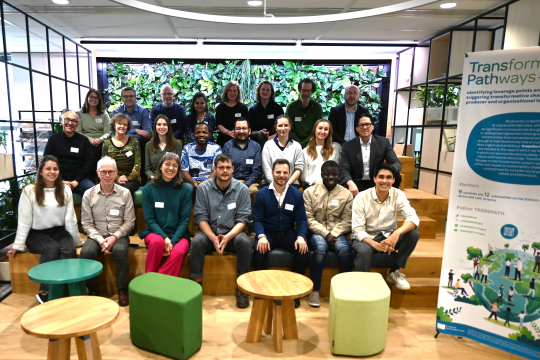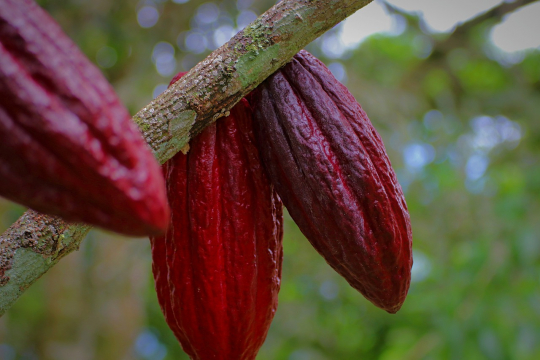Approximately 25 people from the Czech Republic, Spain, the Netherlands, the United Kingdom, Switzerland, Ghana, and Costa Rica participated in the second meeting of the Transformative Pathways (TRANSPATH) Consortium. TRANSPATH aims among others at finding relationships between trade policies and biodiversity and the role of the financial sector in positive value chains.
The TRANSPATH project, based at Wageningen University, a strategic partner of EfD explores the idea of creating an economy that not only avoids harming biodiversity but actively enhances it. This prompts researchers to investigate various strategies for transformative change, termed "transformative pathways.”
“This meeting gave researchers a valuable chance to exchange important insights about the intricate relationship between biodiversity in countries like Ghana and Costa Rica and its effects on the European financial sector,” noted Pablo Evia, coordinator of the Sustainable Consumption and Production collaborative program, (SCOPE).
Loss of biodiversity may cause instability
The TRANSPATH proposes conducting case studies on the financial market focusing on two aspects: i) the impact of the EU’s external trade policy on biodiversity and ii) the role that the financial sector can play in contributing to positive value chains for specific products, such as coffee and cocoa.
"For example, coffee and cocoa thrive in complex ecosystems with a variety of species. Deforestation and biodiversity loss disrupt these natural balances, making it harder for these crops to grow successfully," explained Pablo Evia.
“Much of the cocoa ultimately ends up in Europe, imported by big companies play. If biodiversity loss leads to complications for these large companies, it could generate potential instability in the international financial system.”
Pablo Evia concludes that biodiversity conservation in countries like Ghana and Costa Rica is a relevant aspect of the stability of the financial sector in Europe.
Francisco Alpízar is the Coordinator and Principal Investigator of TRANSPATH and serves as a Scientific Advisor for SCOPE which strengthens the synergies between Wageningen and EfD.
Will lead to policy recommendations
EfD Central America, in partnership with Wageningen University in the Netherlands, is pivotal in coordinating the TRANSPATH project. They are engaged in monitoring the project's progress and spearheading the translation of scientific insights into policy recommendations. This effort will culminate in 2026 on a synthesis document tailored for decision-makers and civil society aimed at advocating the findings and suggestions arising from TRANSPATH.
As the host institution of EfD Central America, CATIE is part of the TRANSPATH project, contributing with partnerships in the field of environmental economics. The alliance with Wageningen University has not only allowed for the successful development of this project but will also give additional opportunities in the fields of research and education.
Read more about TRANSPATH!

